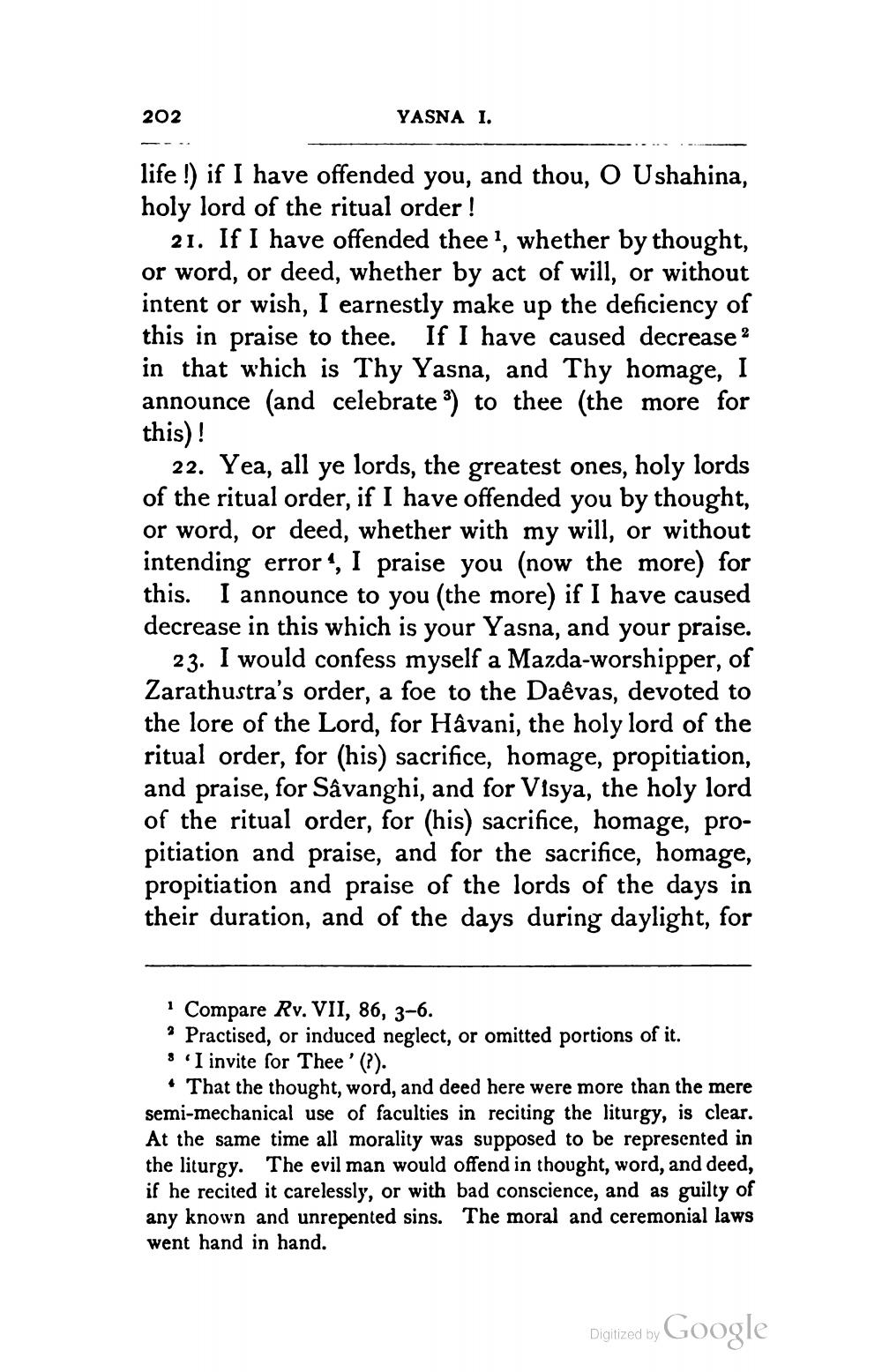________________
202
YASNA I.
life!) if I have offended you, and thou, O Ushahina, holy lord of the ritual order !
21. If I have offended thee 1, whether by thought, or word, or deed, whether by act of will, or without intent or wish, I earnestly make up the deficiency of this in praise to thee. If I have caused decrease ? in that which is Thy Yasna, and Thy homage, I announce (and celebrate 3) to thee (the more for this)!
22. Yea, all ye lords, the greatest ones, holy lords of the ritual order, if I have offended you by thought, or word, or deed, whether with my will, or without intending error“, I praise you (now the more) for this. I announce to you (the more) if I have caused decrease in this which is your Yasna, and your praise.
23. I would confess myself a Mazda-worshipper, of Zarathustra's order, a foe to the Daêvas, devoted to the lore of the Lord, for Hâvani, the holy lord of the ritual order, for (his) sacrifice, homage, propitiation, and praise, for Sâvanghi, and for Visya, the holy lord of the ritual order, for (his) sacrifice, homage, propitiation and praise, and for the sacrifice, homage, propitiation and praise of the lords of the days in their duration, and of the days during daylight, for
i Compare Rv. VII, 86, 3-6.
Practised, or induced neglect, or omitted portions of it. 3. I invite for Thee' (?).
• That the thought, word, and deed here were more than the mere semi-mechanical use of faculties in reciting the liturgy, is clear. At the same time all morality was supposed to be represented in the liturgy. The evil man would offend in thought, word, and deed, if he recited it carelessly, or with bad conscience, and as guilty of any known and unrepented sins. The moral and ceremonial laws went hand in hand.
Digitized by
Digitized by Google




